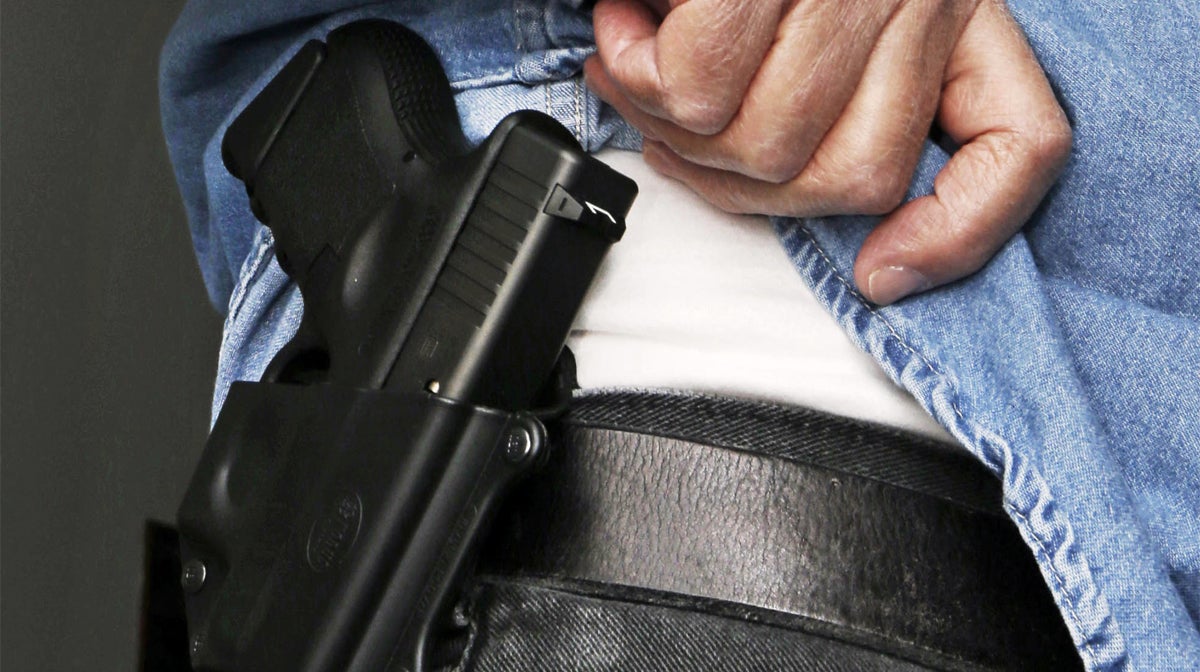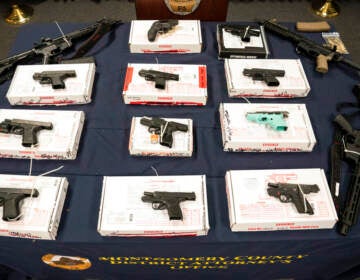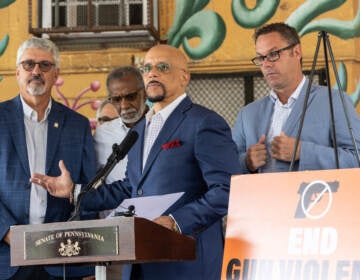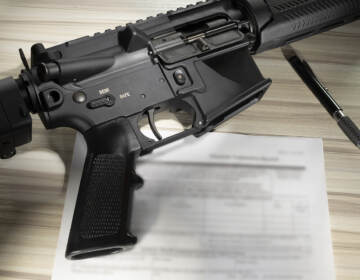Permitting concealed guns in Pa. schools would make kids less safe
Legislation recently passed out of the Senate to permit school personnel to carry concealed guns in Pennsylvania's public schools is a dangerous step in the wrong direction.

A man displays his concealed handgun in this 2013 file photo. (AP Photo/Al Behrman, File)
Everyone wants our schools to be safe places for students and educators.
But legislation recently passed out of the state Senate Education Committee that would permit school personnel to carry concealed firearms in Pennsylvania’s public schools is a dangerous step in the wrong direction.
Arming school personnel would make students less safe and would threaten to turn our schools into free-fire zones.
Senate Bill 383, sponsored by a group of Republican senators ignores the General Assembly’s own recommendations on improving school safety.
A 2014 report released by the House Select Committee on School Safety, which was formed to study ways of improving school safety in the wake of the mass shooting at Sandy Hook Elementary School in Connecticut, did not recommend arming school personnel as a means of addressing perceived threats. Neither did a report released last year by the Joint State Government Advisory Committee, which examined best practices to improve school climate.
There isn’t one credible national, state, or local organization that supports the idea of giving school personnel permission to carry concealed guns on school property. Indeed, National School Safety and Security Services, a consulting firm, advises against arming teaches and school staff.
Bringing guns into our schools increases the risk of serious injury, or even death, if a gun is mishandled and is mistakenly discharged. Children are far more likely to be injured by self-inflicted gunshot wounds or in an accidental shooting resulting from another person’s handling of an improperly stored or unsecured firearm than of being injured in a mass shooting or other purposefully violent act.
The specter of tragedy loomed over an incident in a Chambersburg elementary school last year, when a teacher mistakenly left an armed pistol she was carrying in her school’s bathroom. At least four children used the bathroom during the three hours the teacher’s gun was left unattended atop a toilet. Any one of them could have picked up the gun and caused it to discharge — with tragic results.
Improperly stored guns are also at risk of being stolen, and insurance rates have risen for schools that allow personnel to arm themselves.
In managing the threat of fires, schools don’t equip teachers with axes, helmets, boots, and fire engines. Instead, they hold frequent fire drills to prepare students and staff to quickly and safely evacuate a building during a similar situation.
Schools should pursue similar strategies when confronted with the threat posed by a violent attack by holding shelter-in-place and other drills.
Tackling the problem of school violence by bringing guns into our classrooms and our school cafeterias takes our eyes off the ball and distracts us from implementing solutions that will improve school safety over the long term.
The 2014 House report, for instance, stressed the importance of improved access to mental health services for youth and a greater attention to potential warning signs. While nearly three-quarters of mental illnesses emerge during childhood, fewer than 20 percent of children with diagnosed mental illnesses are receiving the treatment they need.
Too many of our schools lack the resources to provide adequate school counselors, psychologists, and training because of chronic underfunding by the state.
If the General Assembly is truly committed to keeping our students safe, it should provide school districts the resources they need to make these critical investments in treatment and support. And it should abandon this dangerous proposal which puts at risk the very students lawmakers are trying to safeguard.
—
Deborah Gordon Klehr is the executive director of the Education Law Center-PA.
WHYY is your source for fact-based, in-depth journalism and information. As a nonprofit organization, we rely on financial support from readers like you. Please give today.




